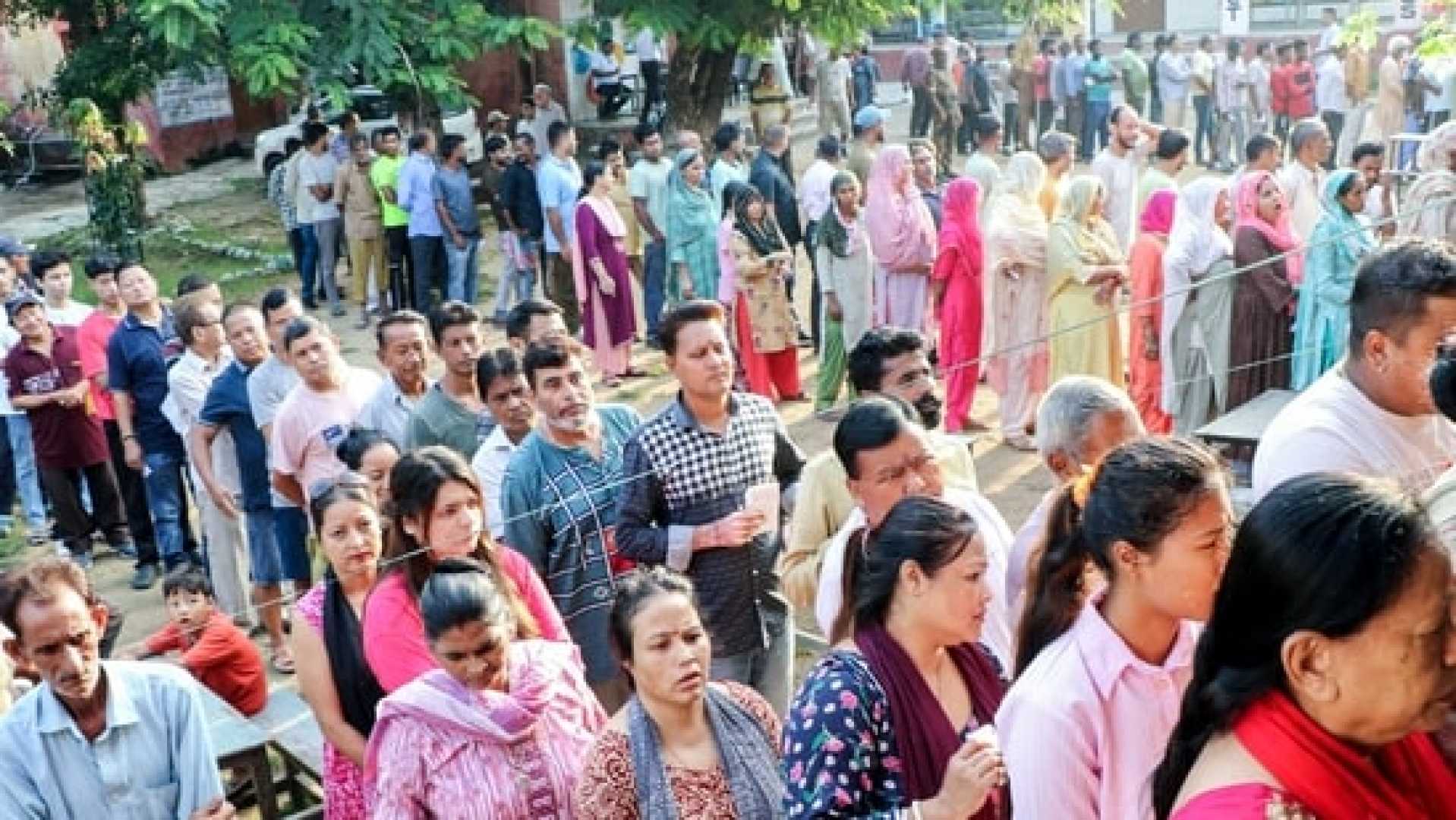Politics
Exit Polls 2024: Congress Anticipated to Regain Control in Haryana, BJP Lead in Jammu Region

The exit polls for the 2024 Assembly elections in Haryana and Jammu & Kashmir (J&K) suggest significant political shifts, with the Congress projected to make a strong comeback in Haryana and the Bharatiya Janata Party (BJP) maintaining a lead in the Jammu region. These projections come after months of anticipation and varied political campaigns addressing key local and regional issues.
The polling in Haryana took place in a single phase on October 5, covering all 90 assembly seats, while J&K conducted voting in three phases due to security concerns, closing on October 1. The official results are set to be announced on October 8, with exit polls providing an early glimpse of potential outcomes.
In Haryana, the exit polls predict a substantial lead for the Congress. According to Matrize, the Congress is anticipated to secure between 55 and 62 seats, thus indicating a potential overthrow of the current BJP government led by Chief Minister Nayab Singh Saini. The BJP, aiming for a third consecutive term, may face a significant challenge with projections placing its seat count between 18 and 24. Opposition parties, including the Aam Aadmi Party (AAP) and the Indian National Lok Dal (INLD), have also been campaigning vigorously against the BJP, focusing on issues such as employment, farmers’ rights, and local governance.
In J&K, the National Conference (NC) and Congress alliance is forecasted to gain 33 to 35 seats, while the BJP is expected to hold a considerable number, ranging from 23 to 27 seats, according to Peoples Pulse. The People’s Democratic Party (PDP) and other smaller parties are predicted to secure between 7 and 11 seats collectively. Omar Abdullah, a prominent leader from the NC, expressed skepticism over exit polls, citing previous discrepancies in exit poll predictions and actual results.
Political analysts emphasize that the elections are critical for both regions given their distinct political landscapes and historical contexts. In Haryana, shifting voter sentiments might reflect broader local grievances and a potential change in governance values. In contrast, the J&K elections are pivotal in understanding the political allegiances after the abrogation of Article 370 and the region’s reorganization into two union territories.
Leaders from both regions have voiced their confidence despite varying predictions. BJP National General Secretary Tarun Chugh asserted, “The results will be better than predicted. BJP will form a government with a full majority in both Haryana and J&K.” On the other hand, former Haryana Chief Minister Bhupinder Singh Hooda of Congress expressed optimism about his party’s victory, suggesting that local issues have swayed voter support.
This political event is closely watched not only for its regional outcomes but also for its potential to influence national political narratives, especially ahead of future elections. As the nation waits for the official results, both major parties and their allies remain on high alert, prepared to strategize according to the final verdict of the voters.












